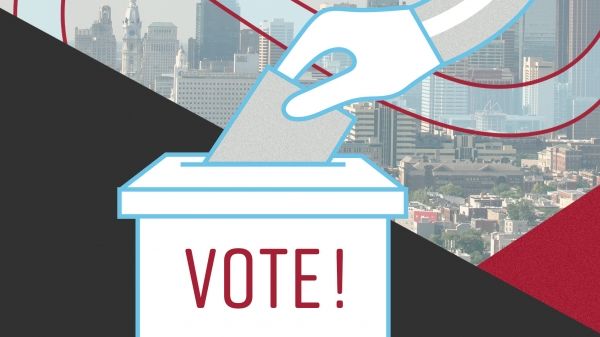
On Election Day, consider this correlation: The United States has one of the lowest voter turnout rates among developed nations, especially in midterm elections. Meanwhile, population health outcomes in the U.S.—such as infant mortality and preventable chronic disease rates—have been deteriorating since the 1980s and are now significantly worse than those in most other developed countries.
Drawing conclusions from simple associations is a dangerous game, of course, but one could still speculate: If our nation’s voter turnout was higher, might we also see improvements in our collective health?
Today’s midterm elections underscore what is at stake for many policies that shape our common wellbeing. Consider that issues such as gun control and reproductive health care have become highly political, but each has significant public health implications. The outcome of this year’s state elections may determine the fate of promising but controversial local public health initiatives, such as the proposed safe injection site here in Philadelphia.
Yet when it comes to the voters themselves, opinions on healthcare don’t follow party lines. A majority of Americans, regardless of their politics, now support the ACA’s requirement that insurance plans cover pre-existing conditions. Medicaid expansion has likewise been extremely popular—and citizens’ initiatives on the ballot in four states would enable expansion even though their legislators have so far refused to do it themselves. These healthcare programs, rooted in evidence and long supported by health and policy experts, are finally gaining the public enthusiasm they need, regardless of party platforms.
But widespread public support does not necessarily translate into progress. Commonsense healthcare and social welfare policies continue to be attacked and impeded by lawmakers in many states and communities (as do voting rights, coincidentally or not). Our responsibility as voters is to ensure that legislation reflects both scientific evidence and growing public consensus on protecting and promoting health. High voter turnout more effectively compels elected officials to act in the interests of their constituents—and this is especially true in local and state elections.
Besides casting your own ballot today, make sure that your family, friends and neighbors are able to cast theirs as well. Like public health itself, voting can be a powerful tool for advancing the common good—but only when it is exercised widely.
In good health,
Dean Laura Siminoff
